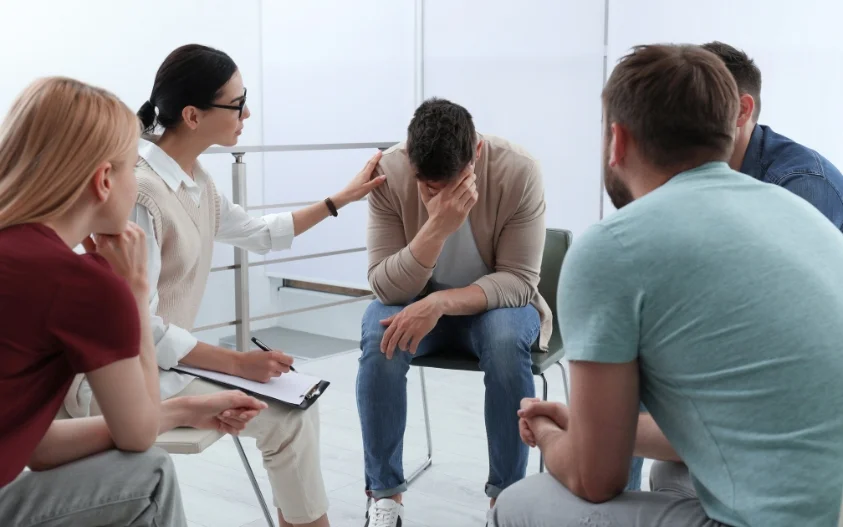24/7 Helpline:
(866) 899-221924/7 Helpline:
(866) 899-2219
Learn more about Opioid Rehab centers in Floyd County
Other Categories in Floyd County

Other Insurance Options

Oxford

CareSource

Lucent

Optum

Highmark

Holman Group

Group Health Incorporated

Health Partners

Aetna

Medical Mutual of Ohio

BHS | Behavioral Health Systems

Meritain

Absolute Total Care

Coventry Health Care

ComPsych

CareFirst

Magellan Health

UMR

Ceridian

Horizon Healthcare Service

Our Place – Drug and Alcohol Education
Our Place - Drug and Alcohol Education is a non-profit rehab located in New Albany, IN. Our Place - ...

LifeSpring Health Systems – Floyd County Office
LifeSpring Health Systems is a premier provider of co-occurring mental health and substance use diso...

Groups
Groups is private healthcare company providing outpatient treatment for opiate addiction using weekl...












































